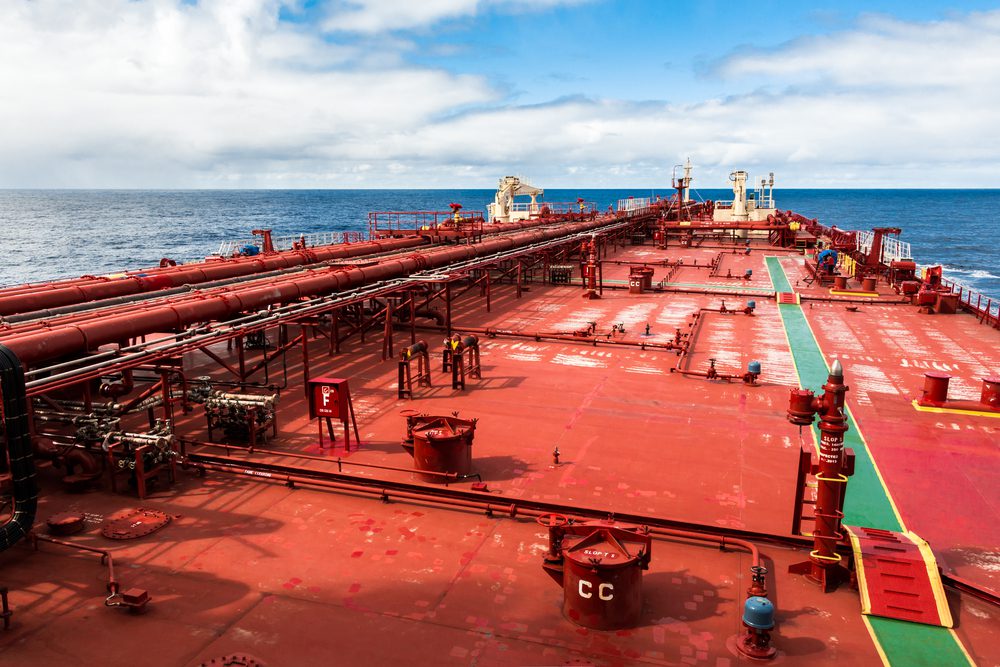Anatoly Menzhiliy / Shutterstock
By Heesu Lee and Debjit Chakraborty (Bloomberg) — Armed with waivers to keep importing Iranian oil without running afoul of U.S. sanctions, some of the Islamic Republic’s top customers are preparing to buy.
The exemptions mean at least some supplies from OPEC’s third-biggest producer will keep flowing into international markets, after Iran’s exports plunged by almost 40 percent since April — the month before Washington announced the curbs.
Almost all major buyers of Iran’s oil had negotiated with the U.S. for the waivers, arguing that cutting purchases to zero would affect their energy industries and boost fuel costs. U.S. Secretary of State Michael Pompeo has defended the exemptions and said the Trump administration’s campaign to pressure Iran has already reduced exports by over 1 million barrels a day and they’ll continue to shrink.
A summary of plans by some of Iran’s biggest oil customers and what they may buy under the waivers is set out below. This story will be updated as new information becomes available. The exemptions have been granted for 180 days, and will be reviewed toward the end of the period.
South Korea
Waiver: Up to 200,000 barrels a day of condensate Purchases before sanctions: 300,000 barrels a day (condensate) in 2017
While the Asian country was the third-biggest importer of Iranian oil, it was the first major buyer to cut purchases to zero as the U.S. prepared to impose sanctions. It’s now allowed to buy as much as 200,000 barrels a day, though actual imports may not be that high.
Purchases must be limited to cargoes of condensate, a type of ultra-light oil that’s critical for South Korea because many of the nation’s plants are geared to process it. The country bought about 300,000 barrels a day of South Pars condensate from Iran in 2017.
The government is said to be in discussion with companies to decide how to split the import volume. They’ll maintain a won-based payment system with Iran, making deposits into local escrow accounts in Industrial Bank of Korea and Woori Bank. The money won’t directly go to Iran, which can only use it to buy food, medicine or other non-sanctioned goods from its customers.
India
Waiver: Up to 300,000 b/d Purchases before sanctions: 560,000 b/d in Jan.-Oct. 2018
The South Asian nation was one of the most vocal negotiators for an exemption from the U.S., as the government faced protests over rising fuel costs before national elections next year.Under the exemptions, it will be allowed to import as much as 300,000 barrels a day. That’s under Iran’s average daily exports to the nation of about 560,000 barrels this year, and almost 450,000 barrels in 2017, shipping data compiled by Bloomberg show.
Indian refiners are expected to buy about 9 million barrels of oil for loading in November from Iran. They too will make payments into a local escrow account for the crude supply.
China
Waiver: 360,000 b/d Purchases before sanctions: 658,000 b/d in Jan.-Sept. 2018
The biggest buyer of Iran’s crude is allowed to import 360,000 barrels a day under the exemptions, according to people with knowledge of the matter. That doesn’t include oil produced by projects in the Islamic Republic in which Chinese companies have equity.
While China had bought about 658,000 barrels a day over the first nine months of this year, the government was said to have told at least two state oil companies to avoid purchasing the producer’s oil before the sanctions went into effect. That decision preceded an upcoming meeting between President Xi Jinping and U.S. counterpart Donald Trump and coincided with flaring trade tensions between the countries. Chinese ship owners had also stopped hauling Iranian oil.
Japan
Waiver: TBC Purchases before sanctions: About 160,000 b/d in Jan.-Sept. 2018
The nation’s refiners are likely to restart imports of Iranian oil now that it’s one of the eight recipients of exemptions, Minister of Economy, Trade and Industry Hiroshige Seko told reporters on Tuesday.
JXTG Holdings Inc., the country’s biggest refiner, echoed that view, saying it may resume purchases from the Persian Gulf state. However, the company didn’t elaborate on how much it could buy. Japanese processors halted purchases of Iranian crude in October under U.S. pressure.
Japan cut shipments in order to get the waiver, Finance Minister Taro Aso said on Tuesday.
Taiwan
Waiver: TBC Purchases before sanctions: About 16,000 b/d in Jan.-Aug. 2018
The chairman of Formosa Petrochemical Corp., Taiwan’s only publicly traded oil refiner, didn’t seem in too much of a rush to buy Iranian oil even though the island got a waiver.
“We don’t dare to sign any more contracts to buy Iranian crude oil after President Trump’s threat,” Chen Bao-lang said on Tuesday. “But it’s not an issue for us, whether Taiwan got an exemption or not. It’s very easy to find alternatives.”
Taiwan has been weaning itself off the Islamic Republic’s crude for the past 10 years. In 2003, Iran’s share of imports peaked at around 18 percent. So far this year, the Persian Gulf state made up just under 2 percent.
© 2018 Bloomberg L.P

 Join The Club
Join The Club











